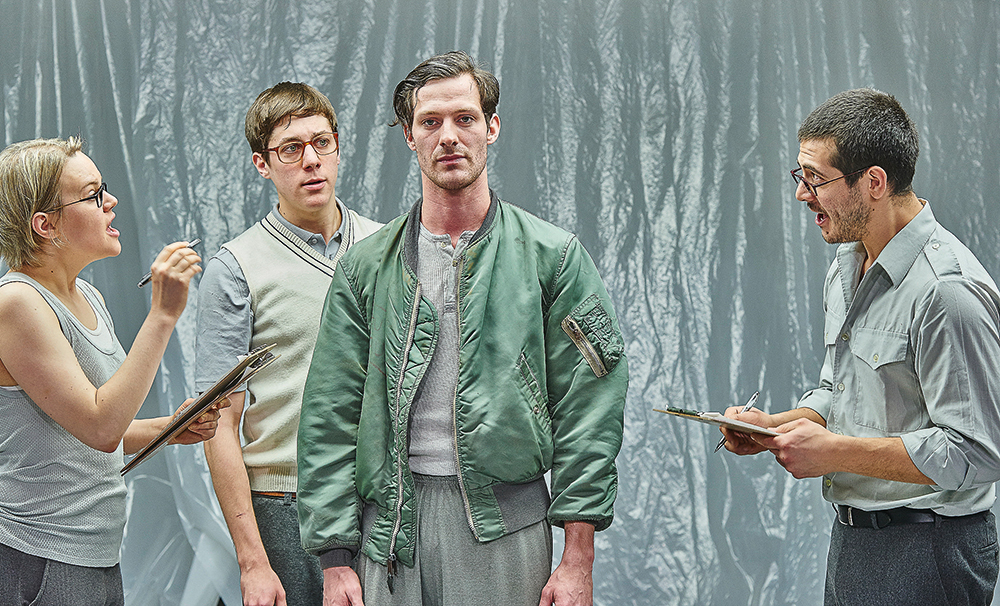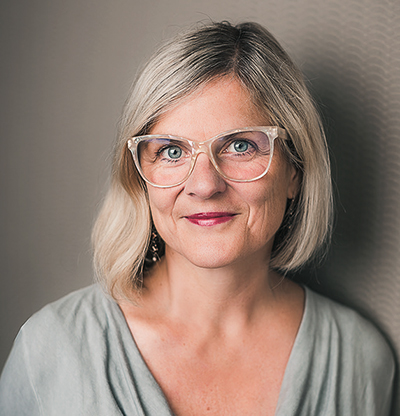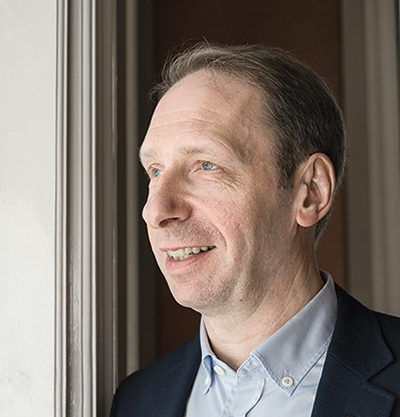Volkstheater head dramaturge Heike Müller-Merten and dramaturgy instructor Peter Roessler talk with the mdw Magazine

At the Max Reinhardt Seminar, dramaturgy is among the central artistic subjects for directing students. Why does that make sense, in your view?
Heike Müller-Merten (HMM): I think that dramaturgy—the study of how texts and literature are structured, how content is conveyed—tells us something about the worldviews that are being propagated by their respective authors. So in my opinion, a central point for directors in developing their productions is to put the world onstage, to portray it. And for this, it’s important to know the thought-constructions inhabited by the author, which gives you the ability to adhere to them or even to contradict, expand upon, replace, or undermine them. Furthermore, dramaturgy is something that relates directly to time—and at certain times, or really almost always, it’s also related to society—often in a way that’s somehow oppositional.
Peter Roessler (PR): When training directors, it’s important to analyse texts, to figure out where one stands personally, and to understand how things relate to societal processes. And in this challenging context, dramaturgy is significant, so we teach the students to be their own dramaturges. They learn to work with a corresponding set of tools and also develop their own ability to write in scenic and theoretical terms. Consistent and broad dramaturgical thinking can also support their imagination in staging things. And finally, one should also mention that many of this programme’s graduates work as dramaturges, so it also adds that professional opportunity.
Mrs. Müller-Merten, how does collaboration between directors and dramaturges usually look in actual practice?

HMM: I’ve been doing this job for 32 years now, and if I didn’t view this relationship as a fulfilling, highly constructive and productive, and mutually complementary one, I wouldn’t still be doing it. That’s the central point of this occupation—because we dramaturges don’t actually direct. We structure a director’s directorial concept, move it forward, and ultimately play a—very strong—role in its development, as part of a mutual process. Our job also, of course, includes examining this directorial concept in terms of its robustness as the production moves forward. So the relationship between the director and the dramaturge is immanently important and central.
Mr. Roessler, how does dramaturgy instruction look at the Max Reinhardt Seminar?
PR: It’s based on an understanding of dramaturgy that’s open to different forms and types of content, though it’s not entirely “anything goes”. What’s more, the goal of our dramaturgical thinking is not popularity; one of its main virtues, I think, is doubt. Let me name just a few dimensions of this field, which is really about much more than just theatre: the exact reading of plays, a theory of the dramatic and the theatrical, the exploration of historical antecedents, and the question as to material’s currency or non-currency. The area where everything flows together is the collaboration between direction and dramaturgy in actual productions: from conception to the final version to observing rehearsals and criticising performances.
How important is it for students to gather experience while still studying?

HMM: Extremely important—and I’m very much for it. It’s about getting to know processes at actual theatres, how the colleagues and departments work together—theatre, after all, isn’t a collection of solo performances by free agents. It’s ensemble work through and through, involving every part of the organisation. Experiencing that and learning how to function as part of it has something to do with social competence, which needs to be acquired. It also has to do with building trust and respect. I’ll always prefer working closely with others, and I’m very happy and grateful that we have such good, productive, and competent collaborators in the students from the Max Reinhardt Seminar.
PR: It’s absolutely essential! The curricula for directing and acting students envision mutual coursework, work on scenes, and actual productions. Directing students’ productions are supervised by the directing instructors as well as by those teaching dramaturgy, they’re publicly accessible, and they’re of the highest quality. So we don’t just talk about theatre, here—we do it, too. And our new partnerships are a valuable additional component: we’re mounting guest performances of student productions at the Akademietheater, and we’re also putting on a festival at the Theater in der Josefstadt. And finally, our collaboration with the Volkstheater is quite extensive: there, directing students and graduates lead productions, student actors perform together with experienced professionals, and we’ve established the festival Neues Wiener Volkstheater, in which dramaturges from the Volkstheater work together with directing and dramaturgy students of the Max Reinhardt Seminar.

